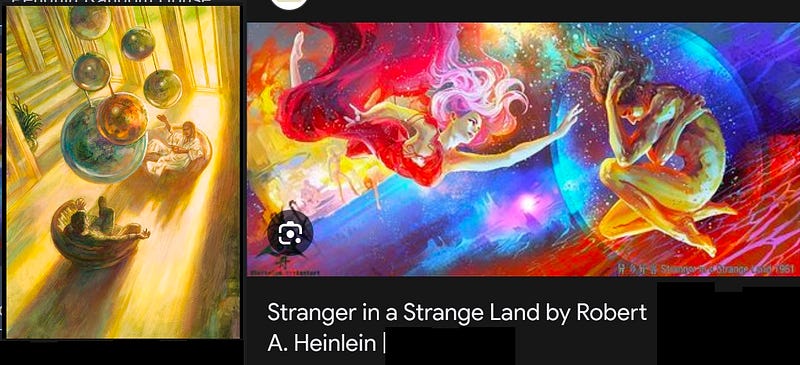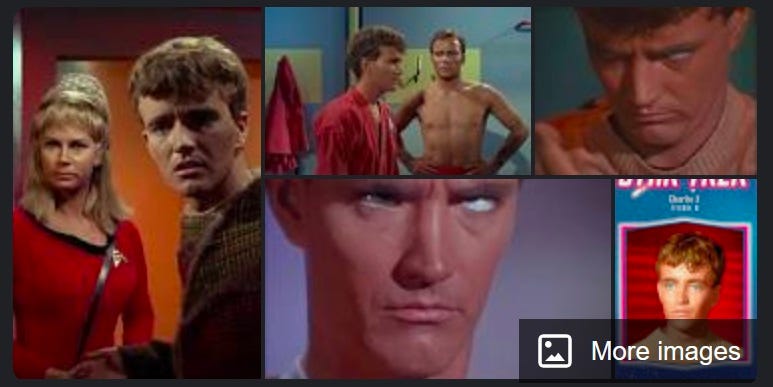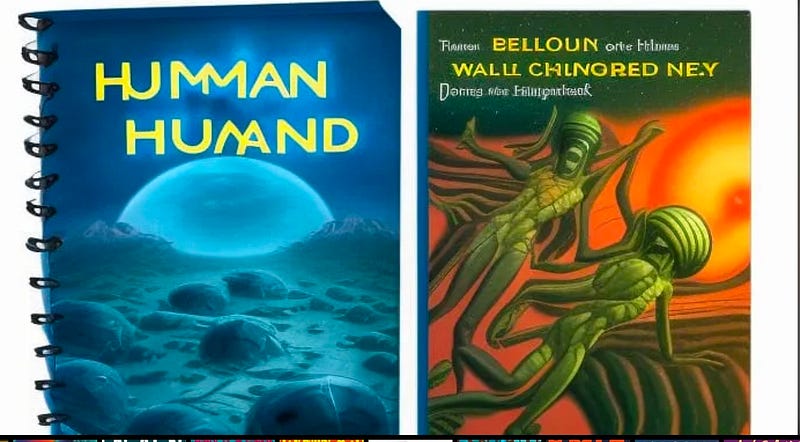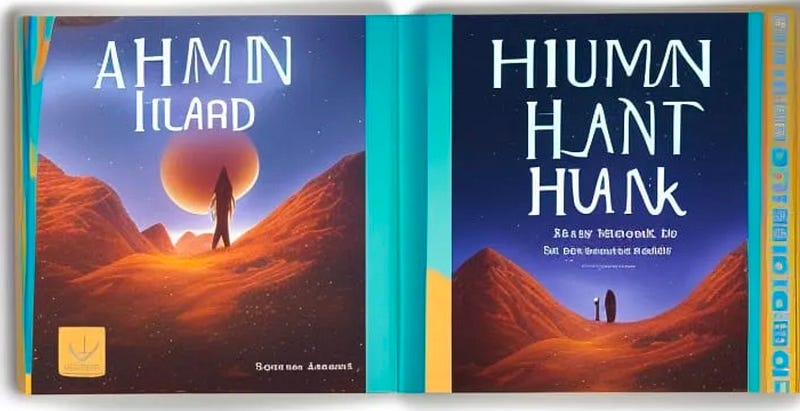Exploring the Cosmic Connection: Aliens, Consciousness, and Reality
Written on
Chapter 1: A Journey Beyond the Ordinary
The idea that "the universe is not only stranger than we can imagine but stranger than we can conceive" is often overlooked. Robert Heinlein's Stranger in a Strange Land serves as an excellent introduction as we delve into this topic. If you haven't yet encountered Heinlein's work, it's highly recommended; it transcends mere science fiction. His narrative illustrates the notion that the universe is indeed more bewildering than we realize, intertwining with Arthur C. Clarke's assertion that "any sufficiently advanced technology is indistinguishable from magic." The book possesses a spiritual depth that nearly led to its prohibition prior to publication, yet the author's vision could not be ignored. Can you perceive what they envisioned, not just through their words but through the works of others as well?

Individuals devoid of vision often fail to recognize that once a creator, poet, mystic, or visionary—akin to Joan of Arc communicating with angels—emerges, humanity will steadfastly adhere to that vision. Gene Roddenberry remained committed to his idealistic vision for Star Trek, and it wasn't until his passing that the series began to lose its direction. The first episode aired after his death showcased the Enterprise D being destroyed multiple times, only to return unharmed, almost as if to say, "Just kidding." Since Roddenberry's departure, Star Trek has taken a darker turn, as others struggle to maintain that illuminating vision.
Those without vision tend to rely on the ideas and emotions of others. Numerous writers, even those in nonfiction, have experienced visions reminiscent of Heinlein's. Dismissing their brilliance hampers our understanding. One author may present a unique perspective, but when many share a similar insight across generations, it could indicate a collective intuition grasping at a much larger truth. What if piecing together these insights could uncover previously unknown celestial phenomena?
Nothing is truly new; rather, there are only variations in cycles so vast that no single individual can witness the ebb and flow of time. We come from the oceans and will ultimately return to them. The strange aspects of existence are not a recent phenomenon; they've always existed.
In 1961, Heinlein posed a provocative question: What if an ancient, intelligent race raised a human equipped with the philosophical knowledge necessary to survive on a planet like Mars? Should that individual come to Earth, they would not only be perceived as a deity but also find our lack of autonomy and capability astonishing. The Star Trek episode "Charlie X" echoes the story of Stranger in a Strange Land, examining humanity's tendency to misuse power. This narrative serves not as proof that "absolute power corrupts absolutely," but rather suggests that if children are granted immense power or technology before they are mature enough to manage it, the sovereignty of others becomes compromised.

Star Trek was exploring themes of good and evil long before Star Wars was conceived. Spock sensed the loss of hundreds of Vulcans simultaneously, and Ben Kenobi felt the destruction of Alderaan without hesitation.
Have you heard of Giordano Bruno? He practiced meditative techniques that allowed him to perceive the planets in our solar system, independent of technology. Whether through Tibetan monks' meditation, Catholic monks' chants, Sufi whirling, oracles in trance, and writers channeling their creativity, we all tap into a source—whether referred to as the collective unconscious, the God mind, or the Universal mind—under many names.
Bruno reached conclusions in solitude that Galileo later confirmed through a telescope. He boldly stated that there were "people" on other planets orbiting other stars, not as an assumption but as a conviction grounded in his vision.
Ultimately, the conclusion is inescapable: Earth cannot be the sole repository of life in the universe, based on everything we understand from science and philosophy. Earth is but a microcosm of the grand entirety, a reflection of the ceaseless cycles of waves crashing upon the shore. Edgar Cayce ventured where Bruno did.
Did you know that Edgar Cayce initially rejected the concept of reincarnation? Despite being known as the "sleeping prophet" and the reincarnation expert, he was not influenced by contemporary literature on the subject. In fact, reincarnation was a taboo topic in his time. After struggling in school and facing familial challenges, he discovered the ability to learn by placing a book beneath his pillow.
Cayce learned to induce a hypnotic state, allowing him to converse with his subconscious, soul, or other entities. Through this process, he provided healing, foresaw the future, and gained significant insights into spiritual existence. He became a true outlier in his society, much like the protagonist in Heinlein's narrative.
Cayce not only reported on reincarnation but also suggested that humans could simultaneously inhabit multiple lives, even positing that many of us might be living on other planets concurrently. This idea transcends a mere modern interpretation of astrology; it implies that while we exist here, we are also engaged elsewhere. In our dreams, we traverse other realms.
All of this serves to facilitate the evolution of our souls. There are countless iterations of realities, and in some dimension, this AI-generated artwork may hold deeper significance, according to the many-worlds theory.

The Creative Process as a Form of Remote Viewing
What if the act of writing fiction is akin to remote viewing? Every human possesses a psychic ability; we often tap into knowledge that seems beyond our conscious understanding. Carl Jung might attribute this to the collective unconscious. The inexplicable occurrences in our lives could signify synchronicity. However, many psychologists strive to fit psychological concepts into scientific frameworks, often downplaying their significance as Jung originally envisioned.
When you sit down to craft a story about an alien world, you might receive vivid details about that realm. Yet, excitement can trigger your analytical mind, causing the narrative to shift from pure vision to more of your interpretation of reality. As Mark Twain noted, "Truth is stranger than fiction because fiction must make sense." If a narrative fails to resonate with the writer, adjustments are made!
What if the writing process resembles a trance state, akin to a light hypnotic experience? Could we all be conversing with our subconscious or soul, accessing deeper truths? Is this what Bruno experienced?
Delores Cannon and Michael Newton, working independently around the same period, placed subjects into profound hypnosis. Those subjects recounted experiences of past lives, future existences, lives between incarnations, simultaneous lives, and experiences on other planets!
Robert Monroe corroborated these concepts in his work Journeys Out of the Body published in 1971. The 1960s and 70s were rife with spiritual revelations, signaling the dawning of the Age of Aquarius and a shift in global consciousness. Love is universal and will ultimately prevail.
You might perceive the world as chaotic, yet neither you nor I possess the complete picture. We each hold a fragment, and together, the puzzle is gradually coming together. If our universe is a tapestry of contrasts, a blend of opposing forces, then true beauty lies in the balance of light and dark themes, reminiscent of an exploded yin-yang symbol redistributing itself into a harmonious fractal pattern.

Niels Bohr suggested that atoms are illusions and that consciousness is primary. Perhaps this implies that simulation theory holds truth, or that spirituality is a genuine reality.
Are spirits real? Are extraterrestrials among us? Certainly! Spiritual aliens are, in fact, reflections of ourselves.
Recommended Viewing
To further explore these themes, watch the following videos:
Aliens & Demons delves into the connections between extraterrestrial life and spiritual experiences, examining how these themes intertwine throughout history.
In Are Our Gods Actually Aliens? – Sadhguru Answers, Sadhguru discusses the possibility of divine beings being extraterrestrial entities, offering a fresh perspective on spirituality and alien life.
This video further explores the intersection of spirituality and extraterrestrial concepts, emphasizing our innate connection to the universe.